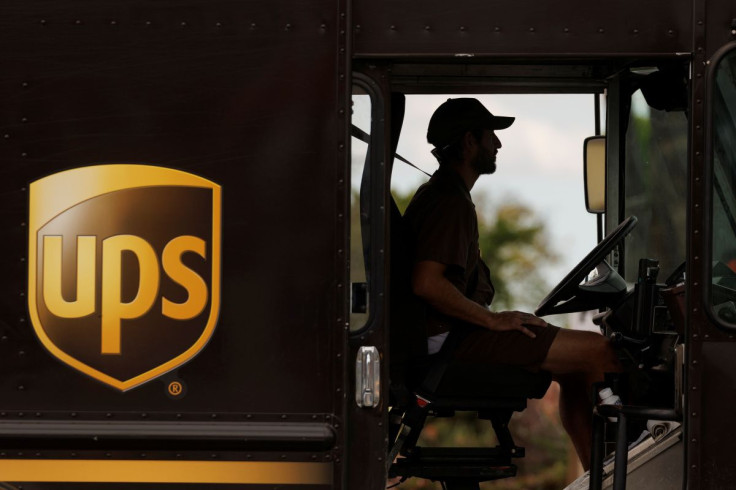UPS Posts Profit, Holds Amazon To Delivery Contract Terms

United Parcel Service Inc on Tuesday reported a better-than-expected quarterly profit, after it raised shipping rates and held the line on the number of Amazon packages it will deliver in its bid to focus on more lucrative shipments.
Shares in the biggest U.S. package carrier that counts Amazon.com as its largest customer fell 3.1% in midday trading after it said it would increase pay for its unionized workforce later this year.
Volume in the Atlanta company's core domestic unit fell 4% in the quarter through June 30. That was partly due to UPS holding Amazon to the contractual maximum number of packages UPS will move and deliver for the e-commerce giant, Chief Executive Officer Carol Tome' said.
"That means that the volume and revenue for Amazon is coming down," said Tome', who forecast that Amazon will account for less than 11% of total UPS revenue by the end of the year.
"That gives us room to grow in the parts of the market," including higher-margin business and healthcare shipments, she said.
In 2013, Amazon swamped UPS with unexpected Christmas packages, spawning a cascade of delays that outraged customers. Soon after, Amazon launched its own delivery business. While that service is growing fast, Amazon still depends on UPS to deliver millions of packages.
UPS, FedEx Corp and other delivery companies are grappling with a fading pandemic-linked online shopping boom. They have been racing to revive business shipments lost during COVID shutdowns, but that has proven challenging.
At UPS, total second-quarter volume fell 4.8% to 23.07 million packages per day, but revenue per package jumped 11.9%.
That decline came after consumers, who binged on e-commerce purchases during the early days of the pandemic, shifted their spending habits due to the lifting of pandemic safety measures and soaring inflation.
As consumers shed masks, they spent more money on in-store shopping, travel, dining and other entertainment. At the same time, soaring costs for rent, fuel and food bit into their disposable income.
"Volumes are down as there is a shift from goods to services so investors are concerned that (UPS delivery) pricing will slip," Cowen analyst Helane Becker said.
UPS posted second-quarter adjusted earnings of $3.29 per share, ahead of analysts' estimate of $3.16, according to Refinitiv data.
Revenue rose 5.7% to $24.76 billion, beating estimates of $24.63 billion.
UPS results have been outpacing those of rival FedEx Corp, under CEO Tome's "better not bigger" strategy of focusing on deliveries that reap the best financial returns.
Shares in UPS fell $5.76 to $182.15.
© Copyright Thomson Reuters {{Year}}. All rights reserved.





















